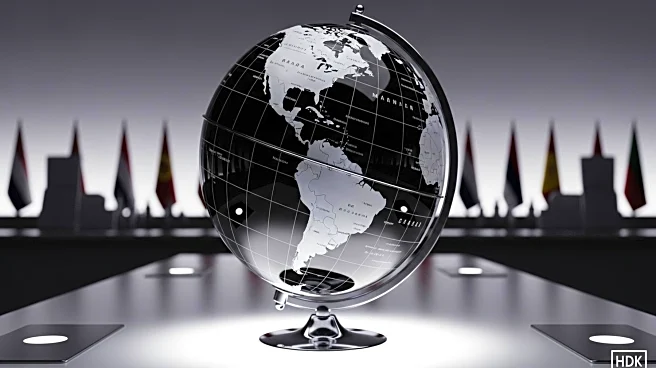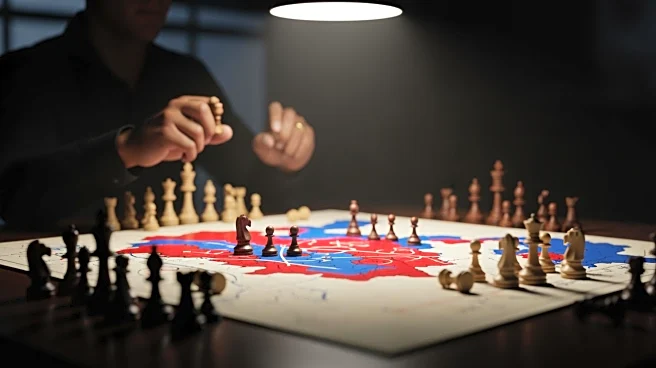What's Happening?
The U.S. Senate has confirmed Michael Waltz as the U.S. ambassador to the United Nations, just days before the annual summit of heads of state at the international organization. The confirmation vote, which concluded with a 47-43 result, followed months of delays and procedural hurdles. Waltz, previously the White House national security adviser, was nominated for the ambassadorship in May after being dismissed from his previous role by President Trump. His nomination was seen as a strategic move to ensure a strong U.S. presence at the U.N., aligning with President Trump's priorities. The position had been temporarily filled by Dorothy Shea, a career Foreign Service officer. Waltz's confirmation comes as the Trump administration faces scrutiny over its approach to international diplomacy and its handling of high-level appointments.
Why It's Important?
The confirmation of Michael Waltz as U.N. ambassador is significant for U.S. foreign policy and international relations. It ensures that the U.S. has a confirmed representative at the U.N. during a critical time when global leaders are convening to discuss pressing international issues. Waltz's appointment reflects the Trump administration's intent to assert its priorities on the global stage, potentially influencing U.N. policies and decisions. The confirmation also highlights the ongoing political dynamics in Washington, where partisan divides have impacted the approval process for key positions. For the U.N., having a confirmed U.S. ambassador could facilitate smoother diplomatic interactions and negotiations, impacting global governance and cooperation.
What's Next?
With Waltz confirmed, the U.S. is poised to participate fully in the upcoming U.N. General Assembly meeting. President Trump is scheduled to address the assembly, which may provide further insights into the administration's international agenda. The ongoing Pentagon investigation into the Signal chat incident involving Waltz could also influence his tenure and the administration's diplomatic strategies. Additionally, the appointment of Tammy Bruce as Waltz's deputy may signal further shifts in the U.S. approach to U.N. engagement. Observers will be watching how Waltz navigates his new role and the potential implications for U.S.-U.N. relations.








